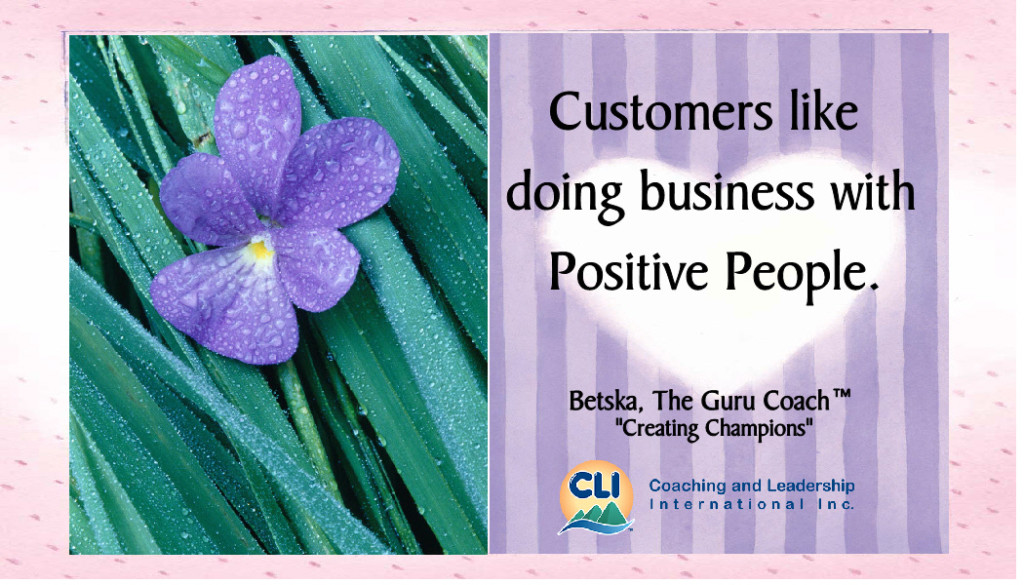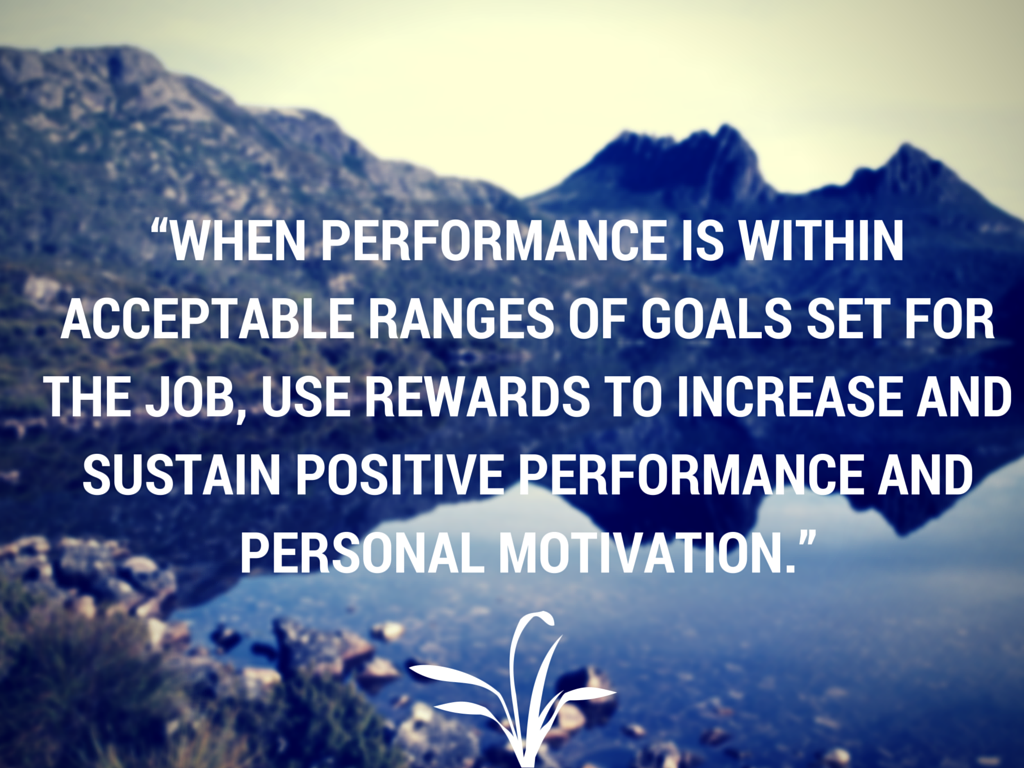Category Archives: blog-post
Universal Law #2: “The Law of Equality” – Towards a More Equitable World
This Law says, “Our true needs, wants, desires, hopes, dreams, wishes and their fulfillment are as important as those of any other soul in existence. In the Creator’s eyes, I am just as important as the next person.”
We learn during CLI’s Life Coach Training that we may not feel equal (“Inferior Ego”) because we are busy decrying ourselves which means we believe others are better than we are or “Superior Ego” when we feel we are better than others. When coaching with this law, we face ourselves HEAD-ON. As leaders, employees and parents, we all can create a safer environment at work and at home when we see each other as equals. Let’s apply this Law to create more love, harmony, and abundance for all to make a more equitable world.
Ego” when we feel we are better than others. When coaching with this law, we face ourselves HEAD-ON. As leaders, employees and parents, we all can create a safer environment at work and at home when we see each other as equals. Let’s apply this Law to create more love, harmony, and abundance for all to make a more equitable world.
Just imagine … wars would disappear, women would feel equal to men, animals would feel safe … such a great world for our children to grow up in, eh? Find someone you discriminate against and show them love today.
Betska, The Guru Coach™
Sign up for CLI QuickTips™ and Blog Updates at:
Coaching and Leadership International Inc
What did Stephen Covey say about Leadership? (Part II)
You will remember our discussion from Part I of this article about the importance of creating a win-win situation in the workplace where the employees feel greatly valued and respected. Stephen Covey greatly emphasized “Win-Win” in his Habit #4 of The 7 Habits of Highly Effective People.
In Part I we presented the fact that most people are NOT motivated by money.
In this Part II, I present a chart with three categories of ways to recognize people:  MONEY – OPPORTUNITY – RECOGNITION. The chart is invaluable as it has 50+ ways to inspire/motivate your people to make them feel like winners.
MONEY – OPPORTUNITY – RECOGNITION. The chart is invaluable as it has 50+ ways to inspire/motivate your people to make them feel like winners.
The least expensive rewards fall under the “Opportunity” section. These rewards provide the individual with an opportunity to grow. They recognize him/her for a job well done by trusting him/her to take on more responsibility and more authority.
Survey after survey of a broad range of employees, show us that rewards which are intangible and those which show sincere thought and consideration have a much longer-lasting effect.
Learning how to build a solid recognition program is an important part of leadership skills training. CLI believes so much in the importance of a recognition program that we feel it should have prominence in every leader’s Employee Strategic Plan initiatives. Once it has been built, the leader has the responsibility to ensure the program is delivered.
We also feel so strongly about it that a good chunk of time is spent on the topic in our Executive and Business Coach Training Program. Once again, this invaluable information is rarely taught in MBA school.
In setting up your reward program, begin by setting performance goals. Then choose the rewards that are best suited to the goal.
Making People Feel Like Winners
“When performance is within acceptable ranges of goals set for the job, use rewards to increase and sustain positive performance and personal motivation.”
[Tweet this]
The chart — Making People Feel Like Winners is taken directly from my first Canadian best-seller “Creating Champions”.
Betska, The Guru Coach™
Sign up for CLI QuickTips™ and Blog Updates at:
Coaching and Leadership International Inc
What did Stephen Covey say about Leadership? (Part I)
One day one of my Executive Coaching Clients called up for his usual coaching session. When asked what he wanted to work on he almost whispered, “Betska, today I want to work on becoming more charming.” One might have thought that he was kidding, but Carl was very serious. You see, ‘Carl’ had observed that the Leaders above him exuded a great deal of ‘charm’ and had the employees in rapt attention to the meeting’s topic. Carl wanted to know how to weave that kind of magic himself! In 90 minutes we developed a doable and exciting recognition program for his people as a way to demonstrate his charm. His people were blown away by the change in his leadership style. They suddenly saw a part of their Leader they had never seen before – a Leader who showed that he really cared for his people and valued them.
Stephen Covey, in 1996, was listed among Time’s 25 Most Influential Americans. More than 20 million copies of his book The 7 Habits of Highly Effective People have been sold and it was named one of the most influential management books by several organizations, including Time and Forbes magazines. The audio book is the best-selling nonfiction audio in history.
So what did Stephen Covey say about Leadership? Lots of things, to be sure!
Habit #4 is particularly interesting as it relates to a Leader’s interactions with their people.
Look for solutions that are beneficial to everyone involved. According to Covey, “This is a frame of mind and heart that constantly seeks mutual benefit in all human interactions. Win-win means agreements are mutually beneficial, mutually satisfying… Most people think in terms of dichotomies: strong or weak, hardball or softball, win or lose. But that kind of thinking is fundamentally flawed.”
How to Create ‘Win-Win’ a la Covey
 Today, we look for both men and women who are hard-working, creative and who go that extra mile. These are the people who get things done, who make decisions and who come up with brilliant ideas. Then, there are employees who simply put in an 8 hour day, who follow their job description to the “T” and then go home. Flashes of creative genius are few and far between. Which type of employee is the most valuable to your organization? The answer is that they are both valuable. The dynamos are required to bring continual effervescence and action to your organization. The steady workers will keep the machinery running smoothly.
Today, we look for both men and women who are hard-working, creative and who go that extra mile. These are the people who get things done, who make decisions and who come up with brilliant ideas. Then, there are employees who simply put in an 8 hour day, who follow their job description to the “T” and then go home. Flashes of creative genius are few and far between. Which type of employee is the most valuable to your organization? The answer is that they are both valuable. The dynamos are required to bring continual effervescence and action to your organization. The steady workers will keep the machinery running smoothly.
Some are motivated by money, others by an opportunity to advance their careers and the remainder by recognition. There are groups of people who are motivated by all three needs and others who work hard only to obtain an opportunity for career advancement.
Therefore, let’s discuss two ways to create “Win-Win”. One is through hinging compensation to company performance and the second is through recognizing and praising our people.
Hinging Compensation to Company Performance
– 9 Big Benefits –
In a Forbes magazine article 2015, we read that people are, in fact, not motivated by money. They are motivated by a few simple desires as uncovered by social psychologist David MacClelland. Money most certainly can be a sub-motivating factor, however it all boils down to these 3 factors as the dominant desires: achievement, affiliation and power. For those who ARE motivated by money, hinging compensation to company performance can be important. Here are 9 big benefits:
1. Changes the corporate culture – everyone feels important to the company’s success;
2. Focuses employee effort on specific behavioural and business goals;
3. Effects innovation;
4. Inspires a feeling of ownership by each employee-they think and act like owners rather than hirelings who simply put in time;
5. Builds teamwork – everyone helps each other to do a better job;
6. Enhances communication between employees;
7. Encourages everyone to be responsible for sales and profits;
8. Employees pull together spiritually during tough times to ride out the storm;
9. Builds loyalty to the organization.
Make Recognition and Praise a Way of Life –
Be proud of their efforts
For employees motivated by achievement, affiliation and power, recognition can go a long way to creating loyal employees.
Before we can build an effective team, everyone must feel equally important to the organization and therefore we must ensure that we reward the right behaviours. It’s also important to be consistent with how we reward our people as taught by Michael LeBoeuf, author of the Greatest Management Principle in the World. LeBoeuf’s book may be older now but nothing has changed around recognition. He said,
“The things that get rewarded get done.”
[Tweet this]
There are numerous ways to reward good behaviour. At CLI’s Executive and Business Coach Training School, Executive Coaches learn how to mentor their Executive Clients on the subject of motivation through recognition. After all, inspiring and motivating staff is not often a subject well taught at our business schools; therefore, Executives are craving this knowledge, just as we have already noted with Carl.
In Part II of this article (coming shortly!) we will present a chart with three categories of ways to recognize people: MONEY – OPPORTUNITY – RECOGNITION. This chart will contain 50 ways to recognize and praise your people, build loyalty and have some fun. Watch for it!
Betska, The Guru Coach™
Sign up for CLI QuickTips™ and Blog Updates at:
Coaching and Leadership International Inc
What did John F. Kennedy say about Leadership?
Looking back, John F. Kennedy was probably one of the most advanced leaders in our global history.
Listening again to his “Commencement Address at American University in Washington,” June 10, 1963. I am struck by his deep insights into global issues and what we as leaders could do to create a better world.
Kennedy’s now famous speech is on “World Peace” which he described as “the most important topic on earth”.
Let’s study some excerpts from his address:
“What kind of peace do I mean? What kind of peace do we seek? Not a Pax Americana enforced on the world by American weapons of war. Not the peace of the grave or the security of the slave. I am talking about genuine peace, the kind of peace that makes life on earth worth living, the kind that enables men and nations to grow and to hope and to build a better life for their children–not merely peace for Americans but peace for all men and women–not merely peace in our time but peace for all time.”
“Some say that it is useless to speak of world peace or world law or world disarmament-and that it will be useless until the leaders of the Soviet Union adopt a more enlightened attitude… But I also believe that we must re-examine our own attitude–as individuals and as a Nation–for our attitude is as essential as theirs. And every … thoughtful citizen who despairs of war and wishes to bring peace, should begin by looking inward–by examining his own attitude toward the possibilities of peace, toward the Soviet Union, toward the course of the cold war and toward freedom and peace here at home.”
“Our problems are man made–therefore, they can be solved by man. And man can be as big as he wants. No problem of human destiny is beyond human beings. Man’s reason and spirit have often solved the seemingly unsolvable–and we believe they can do it again.”
“World peace, like community peace, does not require that each man love his neighbor–it requires only that they live together in mutual tolerance, submitting their disputes to a just and peaceful settlement.”
“… a warning to the American people not to fall into the same trap as the Soviets, not to see only a distorted and desperate view of the other side, not to see conflict as inevitable, accommodation as impossible, and communication as nothing more than an exchange of threats.”
To me, the important messages jumping off the page are “peace for all time”, “every thoughtful citizen should begin by looking inward – by examining his own attitude”, “no problem of human destiny is beyond human beings”, “World peace … requires … submitting their disputes to a just and peaceful settlement”, and very common on the world stage is “communication as nothing more than an exchange of threats”.
I remember my first Life Coach, Jan Sweeney, being very pointed with me when she said, “Betska, if you really want to help the world you must first heal your own negative beliefs … all that sabotage that is going on inside of you.” Taking her statement to heart, I worked tirelessly (and still do) to change my negative beliefs, my prejudices (OMG I had a lot!) and sabotaging actions by understanding The Universal Law of Belief, ‘What you think, you become.”
Where do we find war today other than between countries and for religious ideology? Well, we have wars going on at home between spouses and wars between parents and children and so on. At work, we have wars right at the top in the executive suite usually based on ego, desire for selfless power and lack of trust. At work we also have wars between managers and their direct reports and between departments.
Many of you have read this now famous story in my latest book, The “God” in Coaching – The Key to a Happy Life. I remember complaining to Jan about my husband John – that he was a lousy communicator. Well, Jan gently pointed out to me that the Universal Law of the Mirror was at play here. In other words, the characteristic I saw in my husband which generated negative emotions within me, was also in me. Of course, I resisted looking at myself as I declared, “I am not a lousy communicator. Heaven’s no!” Hah! The truth is that I was, once I admitted it to myself. When John came home from work that evening I sat down on the couch with him and apologized for being in judgment of him all those years – for blaming him when I really should have thanked him for the gift of helping me see my true self.
Whether it is at home, at work or on a more universal front, as stated by Mr. Kennedy, we often resort to using communication as a means to exchange threats instead of choosing to listen, understand and lovingly communicate with each other.
Listening to Ourselves – can we hear our intuition?
As most of you know, I am a great believer in being ‘in the silence’ for at least 30 minutes per day. My often frantic Executive Coaching Clients run from meeting to meeting and from work to soccer or cricket field without taking a breath. Baba Ram Dass has some wise words for us.
 “Inner peace brings world peace” is another one of my favorite sayings. Before we can achieve world peace, we must find inner peace. Peaceful people don’t go to war. (Tweet this)
“Inner peace brings world peace” is another one of my favorite sayings. Before we can achieve world peace, we must find inner peace. Peaceful people don’t go to war. (Tweet this)
The more we can go inside and listen to our real selves, the more peaceful we will become and then we can bring that peace into our interactions with others. People can feel it. Who knows, they may even want some for themselves! It would save a lot of heart attacks, don’t you think?!
Mr. Kennedy would be proud of us.
Listening to Others – can you hear what they are really saying?
One of CLI’s coach training students mentioned that at one time he couldn’t listen to others because he always felt they were wrong! It was appropriate to share with ‘Donald’ that “Listening is the art of physically hearing someone else’s thoughts and opinions, understanding what they’re saying and considering change as a result of it.”
As a leader, in order to create more leaders, his job was to listen to others so that he could discern what support his direct reports needed from him. Donald left his selfish behavior behind and is now able to more selflessly grow his people.
I don’t know if these facts are true or not but if they are, they are worth considering. I have read that we speak at a rate of 120 to 150 words per minute and think at a rate of 500 to 1000 words per minute. We listen four times faster than we talk. It is no small wonder that we miss a lot of what people say. But there are many barriers to listening:
- Physical fatigue
- Distractions from surroundings as well as from the speaker (dress, mannerisms)
- Emotional hot buttons
- Bias, perceptions, cultural differences
- Daydreaming, internal thoughts
Most of us practice selective listening. We hear what we want to hear. We remember what we want to remember. To confuse things even more, human beings listen at different levels. But this chart below is a marvelous tool for improving our listening skills. Used together, these pointers will develop better listening habits that could last you a lifetime.
HOW TO IMPROVE OUR LISTENING SKILLS
- Listen on all four levels: with our eyes, ears, heart and with undivided attention. Listening with compassionate hearts can be difficult for those taught to not go into the fluffy stuff! .
- Judge the content not the delivery. Nervousness can often affect the delivery.
- Don’t judge the speaker’s content before you understand it.
- Listen for ideas and central themes.
- Practice taking fewer, but more concise, notes.
- Work hard at listening. Show them you’re interested.
- Feedback to people what you think you have just heard.
- Ask questions to ensure full understanding.
- Tune out distractions and be nice! (Don’t answer the phone in the middle of your meeting or keep typing on your computer when someone has entered your office to speak with you. Stop typing and give that person eye contact.)
- Exercise your mind to relate their information to the situation.
- Keep an open mind.
- Capitalize on the fact that thought is faster than speech. Mentally weigh the facts and summarize your thoughts.
“Real Communication works at two levels: head to head and heart to heart.”
How can we put our new improved listening skills to good practice in the workplace?
Here are a few ways to consider:
- Listen well to managers all the way through the organization at meetings and one-on-one;
- Listen to all the employees via suggestion boxes, newsletters, field trips, incentive programs;
- Listen by walking around and talking to people and to customers – ask lots of questions;
- Listen via a third party, have an outside company research the organization on its strengths and weaknesses.
How can we put our new improved listening skills to good practice at home?
Send me an email and share your ideas: Betska@CoachingAndLeadership.com Here is probably the most important one to consider:
Sincerely and every day, tell our people how much we love them. Then we can listen intently to what their heart is trying to say to us.
For those of you who wish to learn greater listening skills, learn how to use Mind-Kinetics® tools in order to coach yourself to get rid of the judgments you have about yourself and others. (I may be biased because I developed them! lol) When we eliminate those judgments, guess what happens? Ta da! We find ourselves in a much better frame of mind and heart space to truly hear what others are saying to us. It’s magical.
Inner Peace Brings World Peace. Thank you Mr. Kennedy for stirring our hearts to truly consider peace. How I long for world peace. I challenge each of you to work with me to make it happen.
Betska, The Guru Coach™
Sign up for CLI QuickTips™ and Blog Updates at:
Coaching and Leadership International Inc
What did The Buddha say about Teamwork?
I was coaching a European Executive late last year who told me that while 30 people are supposed to show up for a monthly Senior Management Team meeting, often only 4 people show up. And, if they do show up, some don’t actively participate in the meeting but busy themselves by taking notes on their iPad’s. What do you think is happening here? Perhaps the following thoughts are also going through your head:
- Leader (will call him Joe) is unable to engage his management team in dialogue.
- Leader is unable to engage his team in taking responsibility for decision making.
- Team has lost respect for the Leader (because they don’t show up).
- Team does not trust the Leader and therefore members are afraid to speak.
- Leader’s negative subconscious beliefs are many such as, “I am a lousy communicator and therefore I don’t deserve respect and trust from my team members” and, “I don’t believe in my people”.
So what did The Buddha say about Teamwork? Buddha said that a Leader must be an exemplary figure, someone we can respect and emulate. Buddha, like all fully enlightened Teachers, was extraordinary, virtuous and righteous in every thought, word and deed. He did what he said he would do. Such integrity and consistency won him the trust of his followers. With such leadership characteristics, teamwork naturally happens.
These flowers to the right are from my garden. As an avid gardener, I learn a lot from nature. These three different flowers are sharing the same small space. Note how the blue bells are growing in between the yellow buds of this wallflower? And a yellow tulip is also delightfully sharing the same space. I don’t remember planting them this way; they just showed up this Spring – to my delight. These three plants are harmoniously and happily sharing the same space – not fighting each other, but complimenting each other.
This is how our corporate teams should also function. By practising team principles, we can harmoniously and happily share the same space. Instead, as you well know, jealousy, judgment, lack of confidence, hunger for power and ego, among other things, get in the way. Instead of complimenting each other we disperse our energies and fail to accomplish tasks in a cohesive manner. It is during these moments, we could remember, “Tough times never last, but tough people do.”
“Tough times never last, but tough people do.”
[Tweet this]
DEFINITION OF A ‘TEAM’
 A team is a group of people in which members assume specialized roles in doing work while maintaining the cohesiveness and morale of the group.
A team is a group of people in which members assume specialized roles in doing work while maintaining the cohesiveness and morale of the group.
16 CHARACTERISTICS OF AN EFFECTIVE TEAM
Imagine if Joe embraced and acted on the following characteristics of an effective team …
- Clear understanding of the organization’s Mission, Vision, Goals and the Values needed to achieve the Vision.
- High degree of communication between members.
- Effective decision-making methods.
- High degree of trust between members.
- High level of support between members (no back-stabbing but verbal and spiritual recognition).
- Flexibility in procedures.
- Good balance between productivity as a group and as an individual.
- Good balance between logical and relationship-based behaviours.
- Sensitivity to each other’s feelings.
- Understanding of each other’s strengths and areas of improvement.
- Shared leadership among the members – no one member is more important than the other.
- No cliques or domination by any one member.
- Utilization of each member’s experience and unique resources.
- High degree of cohesiveness.
- Constant evaluation of their progress as a team.
- Members know how to ask tough questions (have taken a coaches training program).
When customers sense poor teamwork, they may take their business elsewhere. And so it’s quite important for Joe to reap the many benefits from team planning:
- improved teamwork
- mutual understanding
- better knowledge of company vision
- issues are addressed
- you see the total business
- improved communications
- puts life into the evaluation process of issues
- improved attitudes
- more fun.
There’s that three letter word again — fun! Teams can be fun and productive at the same time.
TEAM GROUND RULES
There are certain ground rules that need to be followed for effective team planning. If Joe set the ground rules with his leadership team, their achievements would be extraordinary:
- attendance is mandatory to show respect to the team;
- everyone contributes;
- everyone listens and understands (iPads are set aside and full attention is on the team);
- everyone listens with their eyes, ears, heart and with undivided attention;
- conflicts between ideas are welcomed but we need to be nice about it – ego should be in the back garden;
- focus is on achieving a positive result;
- avoid arguing to “win” (the world is full of people who surface think);
- avoid voting, averaging and random choice, think things through;
- use logic and the most recent, relevant information available as well as the heart for balanced decision-making;
- each person takes responsibility by engaging in self development tools in order to strengthen the team’s output;
- leadership training programs are well attended by all in order to understand the components of personal and professional leadership;
- everyone is responsible for the decisions and results.
During Joe’s team planning-sessions, he could use good brainstorming techniques:
- leader ensures everyone is engaged in the discussion;
- no criticism allowed (or they will be asked to leave the room);
- try for quantity and quality ideas;
- combine and improve on each other’s ideas;
- try to be different and creative, be meditative for the highest frequency ideas;
- reach for the new and unfamiliar — be courageous! Take risks!
- use exaggeration and humour to push ideas beyond familiar limits.
Buddha was a great manager of his teams. With deep knowledge of human behaviour and enlightened intuition, he knew the strengths and areas of improvement of those around him. He delegated duties in keeping with the abilities and temperament of each disciple. Of particular note was how he showed his appreciation by recognizing their efforts.
Let’s celebrate Joe’s imminent success as a Team Leader!
Betska, The Guru Coach™
Creating Champions
Sign up for CLI QuickTips™ and Blog Updates at:
Coaching and Leadership International Inc.
What did Steve Jobs say about Leadership?
In my latest book, The “God” in Coaching, a personal development book, I declared that I was a rebel! My entire life I have been the curious cat … driving people crazy with my questions … challenging people to rise up and truly be the best that they can be.
Guess who else was a rebel? Steve Jobs. My hero. As one of the most creative minds of the 20th and 21st century, and a brilliant visionary, he forever changed how we think about innovation. Like me Steve was a vegan. It seems the vegan diet greatly lengthened his life because I understand he had pancreatic cancer for 30 years.
During one of his speeches, Steve made a provocative statement, “Innovation distinguishes between a leader and a follower.” Love that quote!
So the question is, as a leader how do we encourage innovation?
 I have a firm belief that if a leader creates a family atmosphere in their organization, the employees will feel safe which then creates a playground for creativity – in other words they take risks, think outside of the norm and do their work without fear of reprisal or getting fired and so on.
I have a firm belief that if a leader creates a family atmosphere in their organization, the employees will feel safe which then creates a playground for creativity – in other words they take risks, think outside of the norm and do their work without fear of reprisal or getting fired and so on.
There are numerous ways to create that playground, to breathe life and fun into the organization, many of which you will find in this chart — 27 Ways to Create a Family Atmosphere for Creative Thinking. For example, it is conceivable that Steve encouraged his employees to also eat vegan because his cafeterias were stocked with vegan foods. There is no doubt in my mind that a vegan diet helps us be innovative. Why? Because we think more clearly. We don’t have the karma from eating flesh and dairy to clog up our cells. We are not filling out bodies with the animal’s fear. Incidentally, Google employees can also enjoy free vegetarian food every day!
 Customers like doing business with positive people. The key to having positive innovative people in the organization is a Leader who cares.
Customers like doing business with positive people. The key to having positive innovative people in the organization is a Leader who cares.
When you see your staff smiling constantly, when they accomplish their jobs with zest and responsibility and when they go that extra mile to make the organization successful, you know they’re happy.
“When your staff succeeds, so do you.”
Betska, The Guru Coach™
Creating Champions
Sign up for CLI QuickTips™ and Blog Updates at:
Coaching and Leadership International Inc.
















